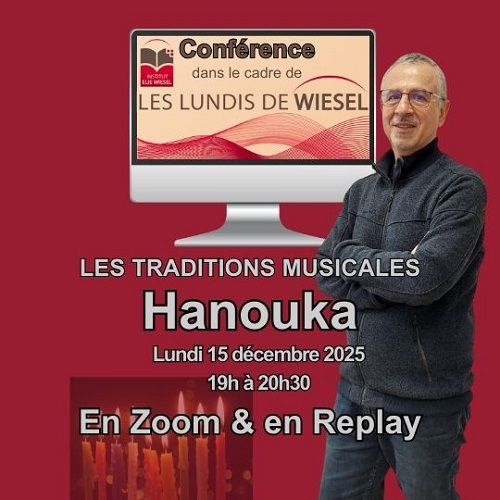
A radio show from the European Institute of Jewish Music hosted by Hervé Roten
MUSIQUES JUIVES D’HIER ET D’AUJOURD’HUI – TUESDAY JUNE 7, 2016, JUDAÏQUES FM (94.8), 21H05. Radio program in French
Considered as one of the major Jewish holidays such as Roch Ha-Shana, Yom Kippur, Succot or Pesach, Shavuot is a solemnity for more than one reason. First of all, its date is not mentioned in the Torah: it is simply described in the Book of Leviticus (XXIII 15) as happening seven weeks after the second day of Passover. It is therefore necessary to count the days and weeks, hence the name Shavuot which means in Hebrew “weeks”.
This countdown of days coincides with the counting of the Omer, this last word defining a volume of cereals that were offered in the Temple of Jerusalem. On this basis, Shavuot is part of the three pilgrimage holidays (Passover, Shavuot and Succot) that took place in ancient Israel from the beginning of spring until the end of harvest in fall.
Shavuot has another feature: the reading at the synagogue of the story of the giving of the Torah enacted on Mount Sinai as it appears in chapters XIX and XX of the Book of Exodus. The link this holiday makes with the giving of the Torah leads to various customs such as: staying awake on the night of the holiday (Tikun Leil Shavuot), eat milk products, read the Book of Ruth as well as the Hazharot, (sort of paraphrases of the 10 commandments) and the Hakdamot (introductive sections of the Mishna written by Maimonide [1138-1204]). It is also after Shavuot that weddings – forbidden since the 1st day of the Omer – are celebrated again, establishing a symbolic relation between the holy gift of the Tables of the Law to the People of Israel, and the union of a man and a woman.
In a musical point of view, Shavuot doesn’t have specific melodies or prayers, but has its own noussa’h. This word which means in Hebrew “version” designates a proper ritual of one or several communities, and a musical mode used by these communities depending on the ceremony.
To each holiday is associated a specific melody and musical motive which lets any worshipper identify immediately in which time of the religious year he is. Music plays therefore a role of marker in time and space.
Jacques Arnold, cantor and rabbi, will guide us all along this musical journey through space and time, which will maybe make us pass through the 8th dimension?
Listen to the a first Shavuot playlist.
Listen to the a second Shavuot playlist.

Ethnomusicologist, he quickly developed an interest in the safeguard and digitization of archives, subjects he taught for several years in Reims and Marne-La-Vallée universities.
Author of many articles, books and recordings related to Jewish music, producer of radio programs, Hervé Roten is recognized today as one of the best specialists of Jewish music in the world.




